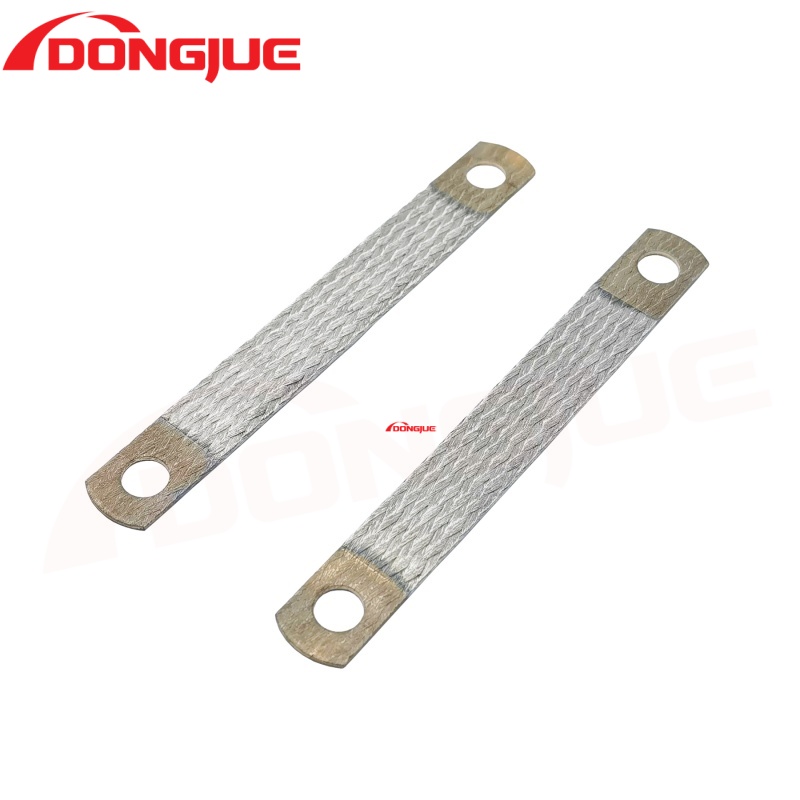What Are Flexible Copper Connectors Used For?
2025-08-21
Flexible Copper Connectors are fundamental components designed to ensure safe and efficient electrical conductivity in a wide range of applications. At our factory, we have dedicated years to perfecting the manufacture of these essential parts, understanding their critical role in system integrity and performance.
Primary Applications of Flexible Copper Connectors
Flexible Copper Connectors are primarily used to create secure, low-resistance electrical connections between components that may experience movement, vibration, or thermal expansion. Their flexibility prevents stress and fatigue from breaking the connection. You will commonly find them in electrical substations, connecting transformers to switchgear, in circuit breakers, busbars, and grounding systems. They are also indispensable in renewable energy installations, such as wind turbines and solar panel arrays, where constant movement and environmental factors demand durable and adaptable wiring solutions.
Key Product Parameters and Specifications
Our Dongjue Flexible Copper Connectors are engineered to meet stringent international standards, ensuring optimal performance and safety. The flexibility is achieved by braiding or laminating multiple thin strands of high-purity electrolytic copper, which offers excellent conductivity and resilience.
List of Key Features:
-
Material: 99.95% pure electrolytic copper for maximum conductivity
-
Insulation: Optional PVC or heat-shrink tubing for added protection
-
Temperature Range: Designed to perform in environments from -55°C to +110°C
-
Flexibility: High degree of bendability without compromising electrical performance
-
Certifications: Compliant with IEC, UL, and RoHS standards
Table of Technical Specifications:
| Parameter Type | Details |
|---|---|
| Cross-Sectional Area | 10 mm² to 500 mm² |
| Finished Type | Bare copper, tinned, or silver-plated |
| Rated Current | Varies based on size and plating |
| Tensile Strength | Exceeds industry standards |
| Application Voltage | Up to 35kV |
These parameters ensure our connectors provide a reliable and long-lasting solution for critical electrical connections.
FAQ About Flexible Copper Connectors
Q1: What are the advantages of tinned Flexible Copper Connectors?
Tinning involves coating the copper with a layer of tin. This process significantly enhances the connector's resistance to oxidation and corrosion, which is crucial for long-term reliability in humid or chemically aggressive environments. It also makes soldering easier.
Q2: Can Flexible Copper Connectors be used for grounding?
Absolutely. In fact, they are one of the preferred choices for grounding applications. Their flexibility allows for easy installation in tight spaces and their high conductivity ensures a safe path for fault currents, protecting equipment and personnel.
Q3: How do I select the right size Flexible Copper Connector?
The selection is primarily based on the current-carrying capacity required for the application. This is determined by the cross-sectional area (e.g., 50 mm², 120 mm²). It is essential to consult engineering charts or a professional to choose the correct size to prevent overheating and ensure system safety. Our technical team can provide expert guidance.
Why Choose Our Flexible Copper Connectors
We take pride in our manufacturing process. Our production involves rigorous quality control at every stage, from material selection to the final packaging. The Dongjue commitment to excellence means our Flexible Copper Connectors are tested for conductivity, flexibility, and durability, ensuring they perform under the most demanding conditions. Our in-house expertise allows us to offer custom solutions tailored to specific project requirements. For high-quality, reliable, and certified electrical components, choose Zhejiang Dongjue Cable Co., Ltd. as your trusted partner. Contact us today to discuss your project needs and discover how our products can provide the perfect solution for you.



